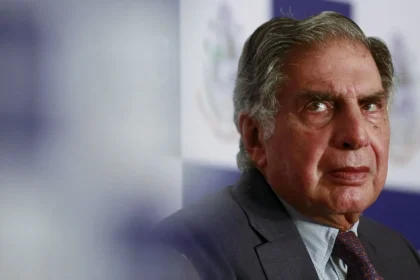All six seasons of the Emmy-winning comedy Sex and the City are going to stream on Netflix for the first time. The show will reportedly be added to the platform in April as a co-exclusive with Max (so SATC will still be available on HBO’s streaming service as well).
The licensing deal is part of a content agreement that HBO parent company Warner Bros. Discovery made with Netflix last July, but SATC was not originally announced as part of that package.
While Netflix is getting all 94 episodes of the original show — which launched in 1998 and starred Sarah Jessica Parker, Kristin Davis, Cynthia Nixon, and Kim Cattrall as four friends in New York City — the streamer is not getting the Sex and the City movies or its current sequel series, And Just Like That (at least, not yet).
This is hardly the first time HBO has licensed the show — it’s previously been on broadcast syndication, basic cable, and even Amazon Prime. So from one point of view, renting out the show isn’t new. What makes it notable is that it’s Netflix, which until last year, HBO had avoided letting license its shows.
Also, last month Netflix was declared by some pundits to be the winner of the streaming wars given the company’s ability to continue to beat estimates by adding subscribers — even during a period where many streamers are struggling — and the way Netflix has a unique ability to make even old shows part of the cultural conversation again (such as USA Network’s Suits). To that end, licensing makes some sort of strategic sense, given that the newfound discovery of the original show could help drive viewers to Max’s And Just Like That.
Other shows that were already announced as part of the deal included Band of Brothers, The Pacific, Six Feet Under, Ballers, Insecure, and True Blood.
But Sex and the City, along with 1999’s The Sopranos, are widely credited as the two shows that popularized HBO as a disruptive creative force in the TV industry; a cable channel that was making a new kind of wildly successful adult programming that provided not only a template for the company’s future efforts, but arguably the entire model of off-broadcast premium serialized content.
According to The New York Times, which first broke the news, media analyst Jessica Reif Ehrlich of Bank of America recently said the increase in licensing shows to Netflix was a “tacit acknowledgment that not all media companies will be able to achieve Netflix’s global reach and scale in streaming,” while another research firm, MoffettNathanson added, “Despite the fact that this strategy is making Netflix stronger and more efficient, Netflix’s competitors appear willing to feed the beast.”
In November, HBO chief Casey Bloys addressed the strategy shift and said there is a “balance” at play.
“We have to be protective of the shows that we have and are successful,” he said.
“But, you know, I’ve worked in television long enough that syndication used to be, that was the pot of gold. That was the brass ring that meant that your show was gonna go on and have a life after its initial run and live for decades. So the idea of selling a show outside of your ecosystem wasn’t an unusual idea, obviously at HBO we did it a lot with Band of Brothers, which was on, I think, History Network, and Entourage, Curb Your Enthusiasm, Sex, and the City. We basically sold everything, so it’s not a new concept.
“Obviously, streaming and companies kind of reorienting themselves has impacted that,” he added.
“But I think the way that we’re doing it somewhat cautiously, doing it co-exclusively, we’re never giving anybody an exclusive right to a show. What we’ve seen so far … with Ballers and any show that we’re putting on, we’re seeing an uptick on that. So it has been helpful. That said, I don’t think you’re going to see more recent shows, you’re not going to see the shows I presented here on anywhere else until years later, which is the syndication model, so I am comfortable with it.”




